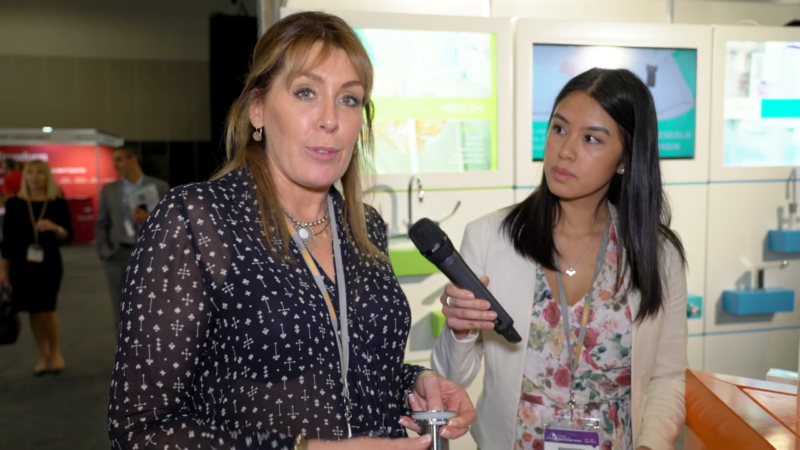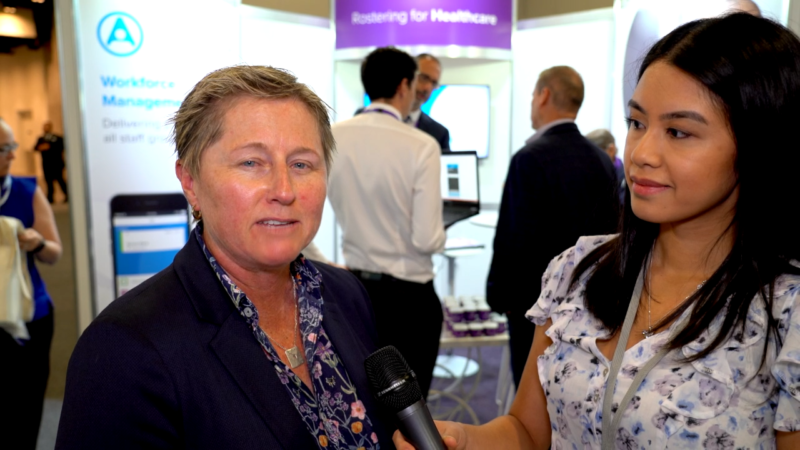PHARMACIST PRESCRIBING MODEL GETS FURTHER SUPPORT FROM STATE HEALTH Training rolls out to support full scope of practice for pharmacists ready and interested
With
Kate Gunthorpe,
Pharmacist Implementation & Change Specialist
TerryWhite Chemmart &
Adjunct Lecturer & Examiner
James Cook University &
Pharmacist Prescriber,
Brisbane Metro, Rural and Regional
Esmond Biesiek-Wright, Pharmacist & Network Partner,
TerryWhite Chemmart Compounding Ainslie (ACT)
EARNED MEDIA SEGMENT
Filmed in Brisbane & Canberra | September 2025
Legislative and regulatory changes following the success of the pharmacist prescriber model in Queensland are continuing with NSW Premier Chris Minns in early September 2025 announcing additional training centres from 2026, making permanent pharmacist treatment for certain dermatological conditions and outlining plans to assess pharmacists prescribing antiviral medications for influenza.
A full scope pharmacist prescriber model allows pharmacists to independently prescribe medicines within their professional competence, without requiring prior doctor authorisation. It extends pharmacists’ role beyond dispensing to include assessment, diagnosis of minor and chronic conditions, initiation and modification of therapy, and ongoing patient monitoring. This model integrates pharmacists into primary care teams, aiming to improve timely access to treatment, reduce pressure on general practitioners, and enhance continuity of care. Pharmacists use their clinical knowledge, patient records, and collaborative pathways to ensure safe prescribing. The model emphasises training, regulation, and accountability to maintain high standards of patient safety.
Pharmacist prescribing plays a crucial role in alleviating the pressure on emergency services and general practitioners, allowing pharmacists to enhance their skills and job satisfaction while welcoming more pharmacy students into the workforce for fulfilling careers. Kate Gunthorpe, an Implementation and Change Specialist at TerryWhite Chemmart and a pharmacist prescriber serving Brisbane and its surrounding areas, points to a pilot program established in Far North Queensland that were the origins of the model. This initiative permitted pharmacists to autonomously prescribe for 22 common acute conditions without the need for GP intervention.
At present, Queensland stands at the forefront of full-scope pharmacist prescribing, with Northern Territory and Western Australia beginning educational programs to support this practice. Other regions, including Victoria, Tasmania, and South Australia, are developing similar programs, while Australian Capital Territory is expected to follow suit shortly in early 2026.
Esmond Biesiek-Wright, a partner pharmacist at TerryWhite Chemmart Compounding Ainslie, spoke to Australian Health Journal. He emphasises the importance of fostering collaboration with GPs, noting a shift from transactional interactions to more collegial relationships, to support the patient needs.
Since beginning her training for pharmacist prescribing through James Cook University, Kate is dedicated to ensuring her community benefits from these advancements and is optimistic about the future of pharmacist prescribing across Australia, promoting better health outcomes for all.
Source: Written by AUDIENCED
You Might also like
-
Mission to raise awareness of sarcoma and need for clinical trial funding
Sarcoma, a rare and aggressive cancer, remains the deadliest cancer for children and young adults, accounting for nearly one third (30%) of cancer-related deaths among those aged 15–24 and one tenth (10%) of those aged 0–14. Further, still severely under-diagnosed, sarcoma only accounts for one sixth (15%) of all cancer diagnoses in the 15 – 24 age group, and less than a tenth (8%) among children under 10.
-
AHW Exhibitor: Gentec Australia
Gentec Australia, an Australian supplier of tapware and designer of wash basins to the healthcare industry exhibited at last week’s Australian Healthcare Week 2019. Their patented basin design reduces the risk of infection through splashing from water through an offset waste, as well as other infection control features. Know My Group reporter Anne Dao spoke with General Manager for Sales Graeme Bunt and State Manager (VIC) Vanessa Beever.
In an upcoming segment Australian Health Journal will cover the technologies deployed and steps taken by hospitals and clinics in infection control.
Post Views:
2,255 -
Michelle Fenwick – Northern Health
The outskirts of Melbourne is experiencing significant population growth over the next 10 years and Northern Health has taken preemptive steps to ensure the supply of new talented healthcare staff as well as develop the culture of the workplace.
Michelle Fenwick, the Executive Director of Northern Health spoke with our reporter Anne Dao on the challenges of this urban growth over the past 3 years. By 2031 the region is expected to increase in population by 63%. Added to this is hiring and training the right workforce to align with the clinical care needs of people coming into the healthcare centres.
Culture is forming in a growing organisation with approximately 70% of staff having been at Northern Health less than 4 years. However there is opportunity for clinical staff to accelerate their career in such an environment
Post Views: 2,389



